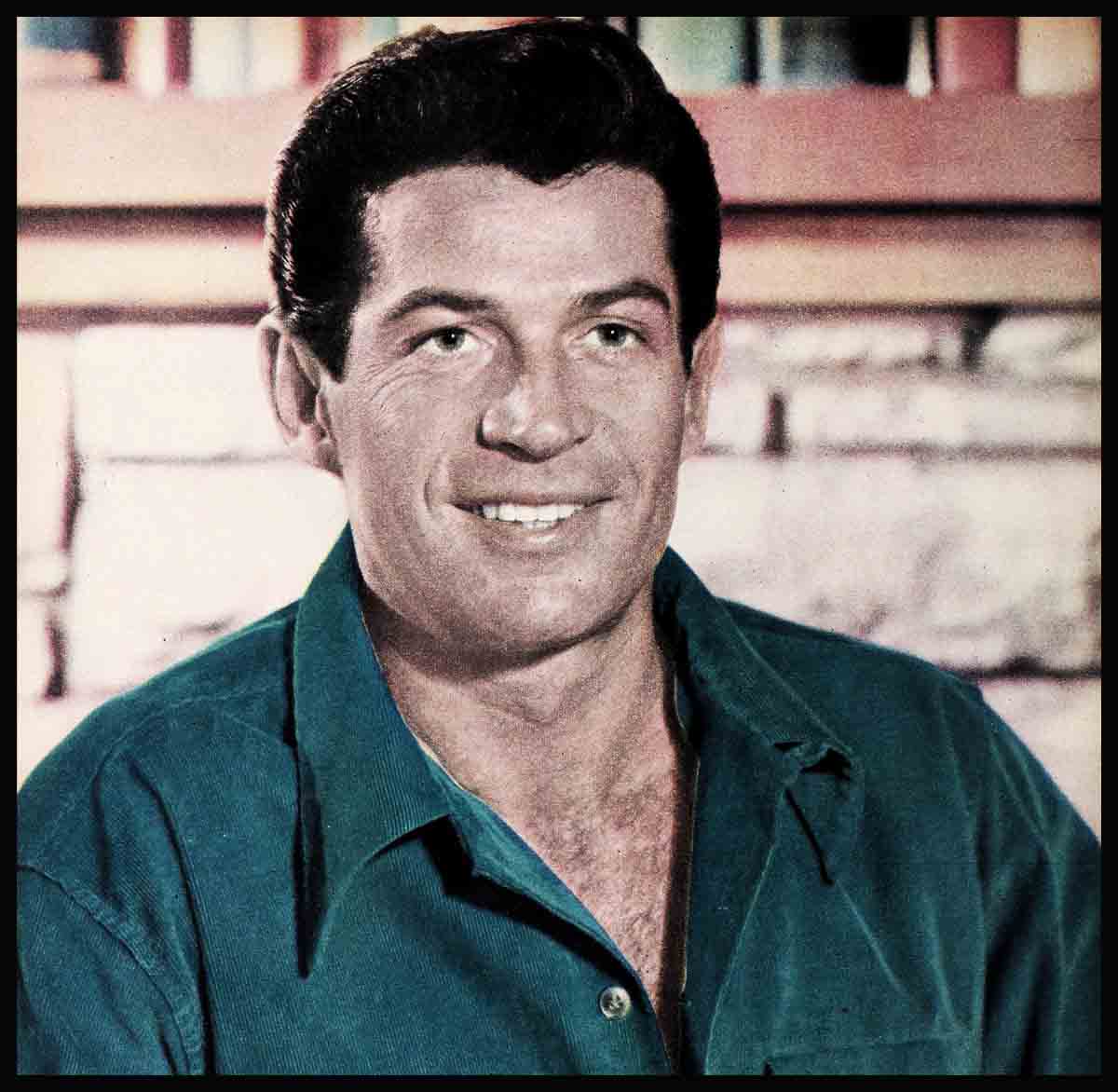
Don’t Kid Yourself!—George Nader
George Nader squirmed in his seat and shuffled his position. Feeling his way around the darkened floor for the moccasin he’d kicked off in exasperation, he kept one eye oh the screen in front of him. “Oh, awful,” he groaned half-aloud as he watched himself on film and got an annoyed grunt from the man sitting next to him. He got up, pulled down his sweater and went for a drink of water. Returning to his seat, he checked his watch—only twenty more minutes of agony to go. When the lights went on and the audience emptied the preview room, he slouched out inconspicuously.
“There’s something shocking about seeing yourself on the screen for the first time,” George still insists. “I really never knew myself until I got a glimpse in ‘Monsoon,’ my first movie. I was shocked by my voice, hated my appearance—literally crept home in despair. I never really knew what I was like till then.
“It’s funny. I never went for that know-yourself business. You know the kind of advice people hand out to you when you’re in your teens. It takes a lifetime to do this—and then you can’t be sure. The only thing you can try for is to play it straight. Don’t kid yourself.”
At this point, the tall, charming and very intelligent Mr. Nader sat back and gave the relaxed grin which won moviegoers by the thousands in “Six Bridges to Cross” and won George the coveted Henrietta from the Foreign Press Association as a “newcomer with most promise of becoming a star in 1955.”
George gives you the impression he likes fame very much, thank you, and likes acting, too, but you don’t feel he’s going to chew his way through any stone walls or climb on any friendship to get either. He’s relaxed like the native Californian he is.
Hollywood calls him a lady’s man—in the pleasantest meaning of the phrase. If he is, George doesn’t seem to know it. He’s honest, direct and to the point. If he likes the perfume you’re wearing, you can bet he’ll mention it. Look especially attractive and he’ll note and comment on it. And the girl looking at him (a pleasant sight) starts glowing. It’s no wonder Hollywood gals like Barbara Stanwyck and Martha Hyer and society belles from Pasadena to San Pedro find him good company. So far, George has been able to remain a bachelor. The way he explains it, it has to do with growing up on his part.
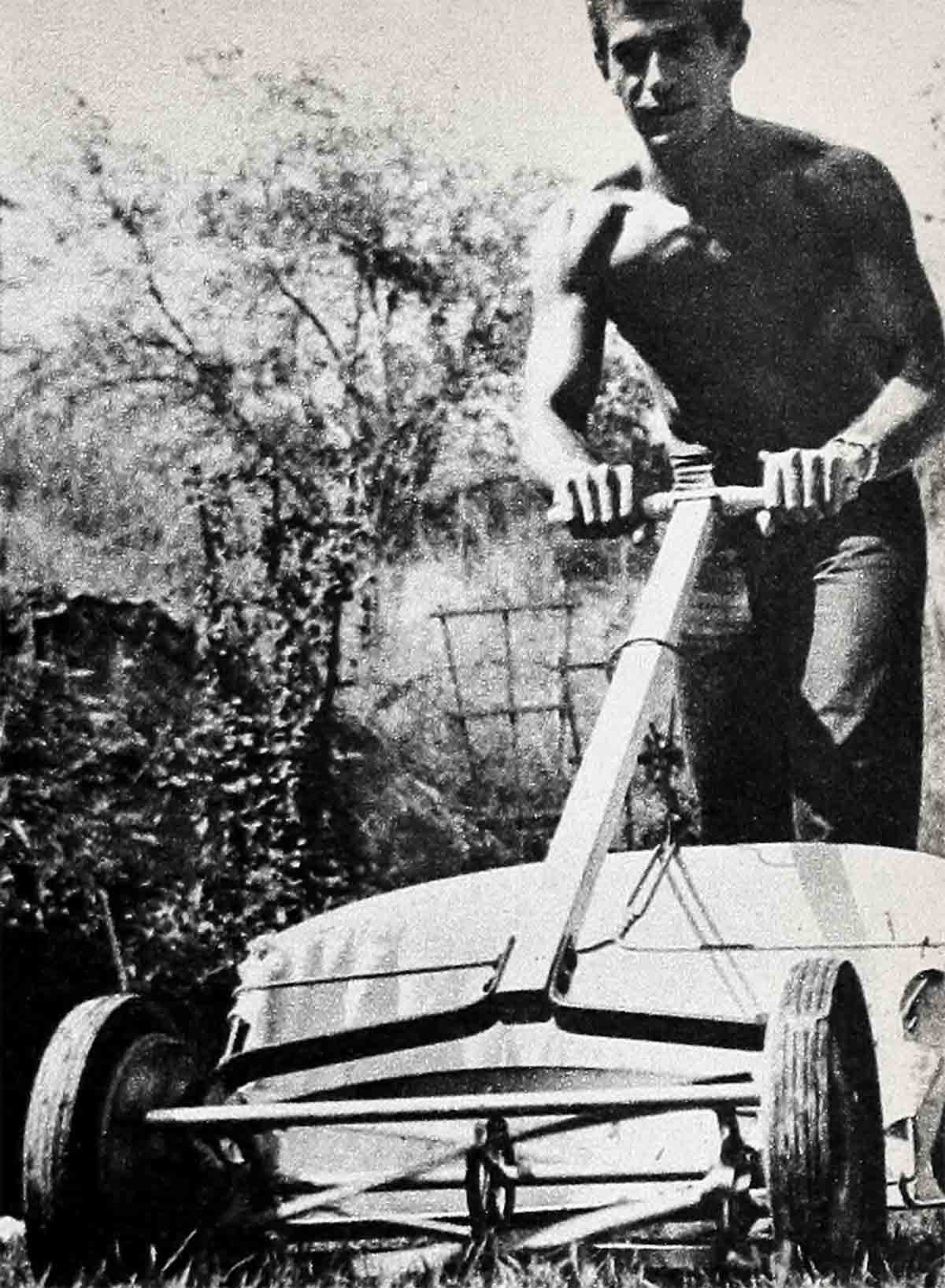
“I was terribly and deeply in love with a girl,” explained George. “I had every intention, when the war let me off a hunk of dredged-up coral reef called Johnston island, of coming back and marrying her. But then came mail call one day and for me the end of a dream.
“There were also two other girls in my life. Since they’re local girls and now happily married, how can I describe them to you? It could make for misunderstanding all around. But I can tell you this: If women are influenced by the men they go around with—and love—I think men are more influenced by the girls they date.
“I can tell you this much: The first girl I ever dated seriously gave me my first self-knowledge. Her family wasn’t rich in money, but in idealism and intellect they couldn’t have been wealthier. I don’t believe this girl ever had one wicked thought, let alone the idea of doing one wicked act.
“As long as I admired her from a distance, it was fine. But the moment I found myself turning human, wanting her to be a little less flawless, I discovered my own first weakness: I just couldn’t live up to an ideal, all day, every day.
“I think any young person has made a long step forward when he first comes to realize he is not perfect.
“The second girl I was serious about was completely different, though a beauty, too. She was superior to me and taught me many things I wanted to know and learn. Yet we broke up, eventually, because of that very fact—I didn’t like always being the pupil. And then I met the girl—the one who sent me the ‘Dear John’ letter.”
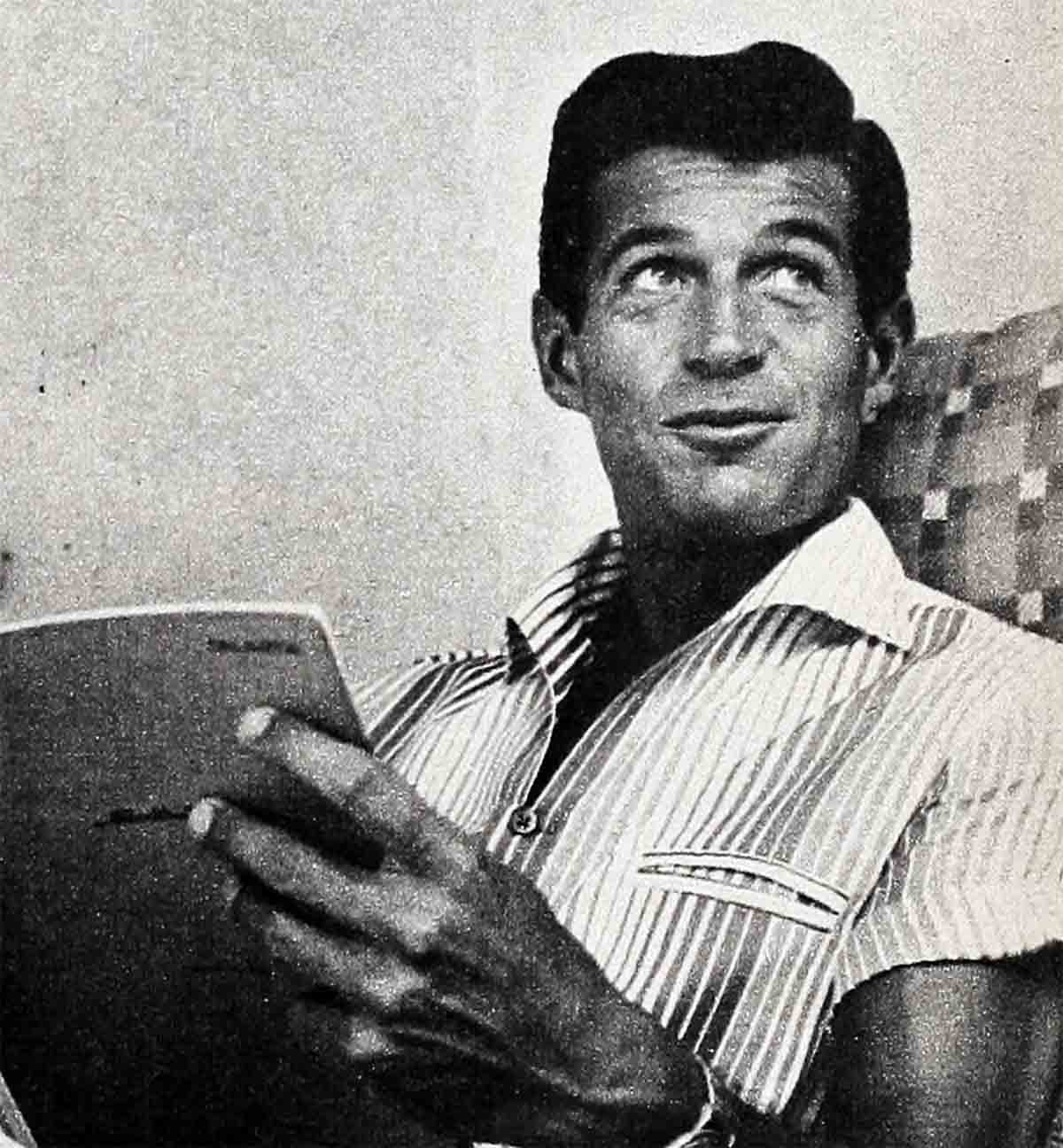
George paused again, deeply serious. “Let me say for the purpose of disguise that this girl had two heads and poor posture, which she didn’t. I can only say she made me, for the first time, think of somebody else first. What she wanted to do was what I wanted to do. Her comfort was my first thought, her wishes, her desires. I was a mere Ensign, j.g. in the Navy, a ninety-day wonder who had got a quick brush-up at Harvard to make me mildly fit to wear my uniform. But as long as I had that girl, I felt like a particularly blessed but humble young Prince, bowing down before a Princess. Then, all of a sudden, I was just ‘dear John’.”
Silence fell in the room at U-I. “You get this kind of wallop to the heart,” George continued, coming back to the conversation, “and I think what it does to you is to make you want not to hurt anyone else. Later, when I went to India to make ‘Monsoon’ with Ursula Thiess, I couldn’t stop marveling over the kindness of the Indian people. They were always giving us gifts and many courtesies.
“Ursula was a marvel to me, too, the first European girl I’d known, so very beautiful, so sweet and yet with such a good head on her shoulders. ‘Monsoon’ should have been a succes, but it wasn’t, and ‘Memory of Love’ which I made in Sweden, didn’t get much circulation in this country.
“One thing seeing myself on a screen did—it helped me realize all the studying I needed to do. And when I came back to this country and encountered an actress like Loretta Young I knew I’d never know, try as I would, one-fiftieth as much as she does about acting. I’m one of the laziest people on earth and my idea of a perfect time is to lie on a beach and never move one inch. I knew though, when U-I signed me, particularly with all the top competition I’ve got around this studio, that it was live alone and work and like it for me if I expected to survive.
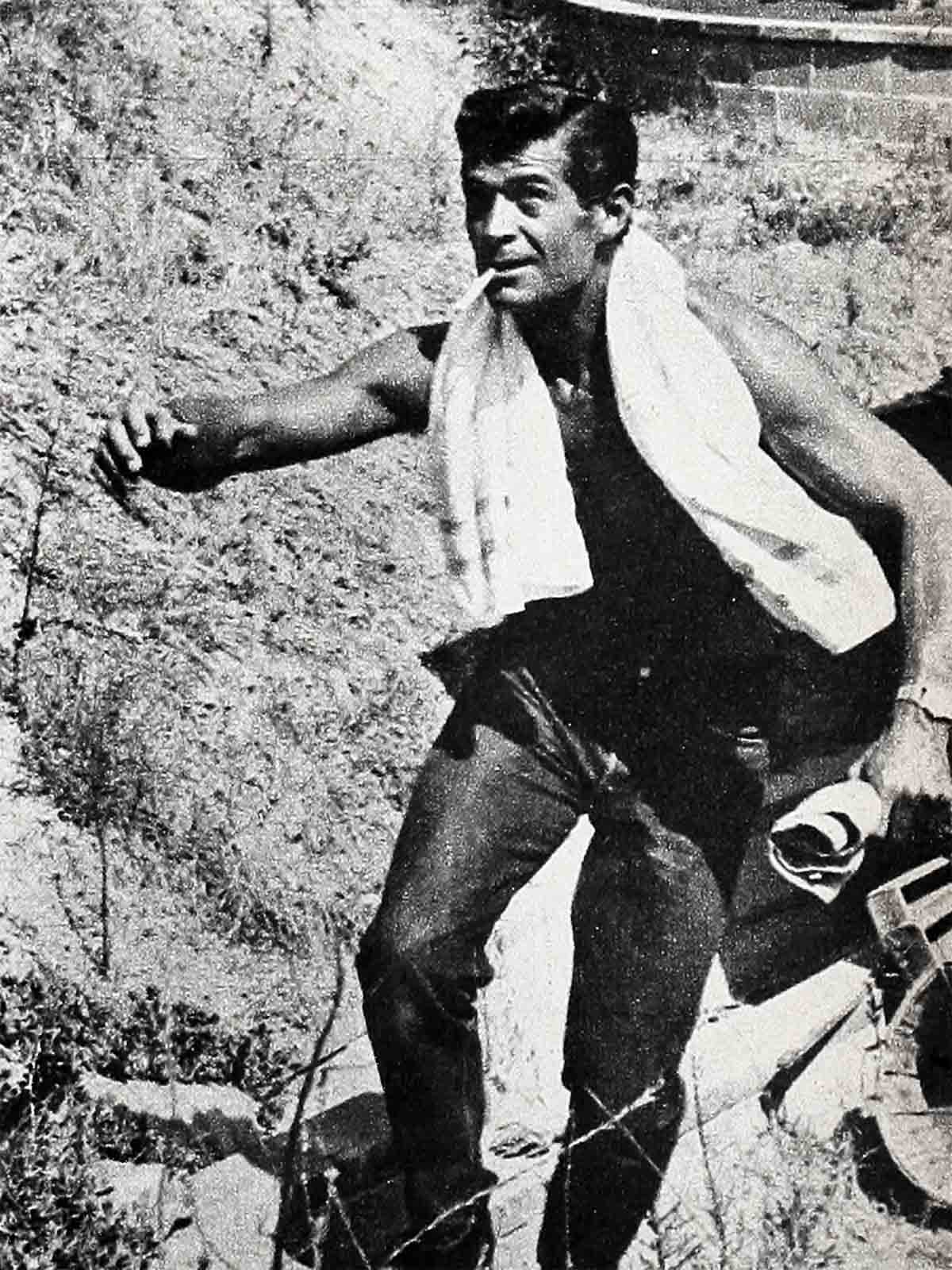
“If I had my life to live over again, however, I’d start working on acting right from the beginning. Perhaps there are a fortunate few who know from the beginning what they want to do, but most of us are very undecided about the whole thing for a long time—maybe even past college as I was. I was lucky in that my parents left the matter of choosing what I would do completely up to me. The kids I feel sorry for are the ones whose parents, no matter how well-to-do, turn this period of searching into a life-and-death struggle. It becomes sort of a nightmare of indecision. In most cases, this worry is really needless, because it’s normal not to know.
“The only dangerous part comes in if a person does nothing. You can’t just sit and read comic books until you’re thirty and then at thirty-one expect to discover a cure for the common cold. It doesn’t work that way. You’ve got to keep trying and experimenting with as many different crafts, vocations, hobbies, lines of thought, as possible. You must make it possible for things to happen to you—nothing happens in a near-vacuum—at least nothing that will turn out to be of much help in deciding on a career or job.
“Most people have dreams—there’s nothing wrong with dreaming—but more often than not these are made up of smaller hopes, wishes and desires that change as we grow and develop. I can’t remember ever knowing a person who had a ‘lifetime dream,’ something that came to them in a blinding flash at the age of six and filled them with driving ambition, desperate desire and the burning knowledge that this was what must happen, this was it.
“If you have dreams, you’ve got to do something about them. If you want a particular thing and it seems impossible to achieve, sitting back and saying, ‘There’s no way that this can come true,’ isn’t going to help a bit. No one can spoil your life for you but you, and no one can really make a dream come true but you.
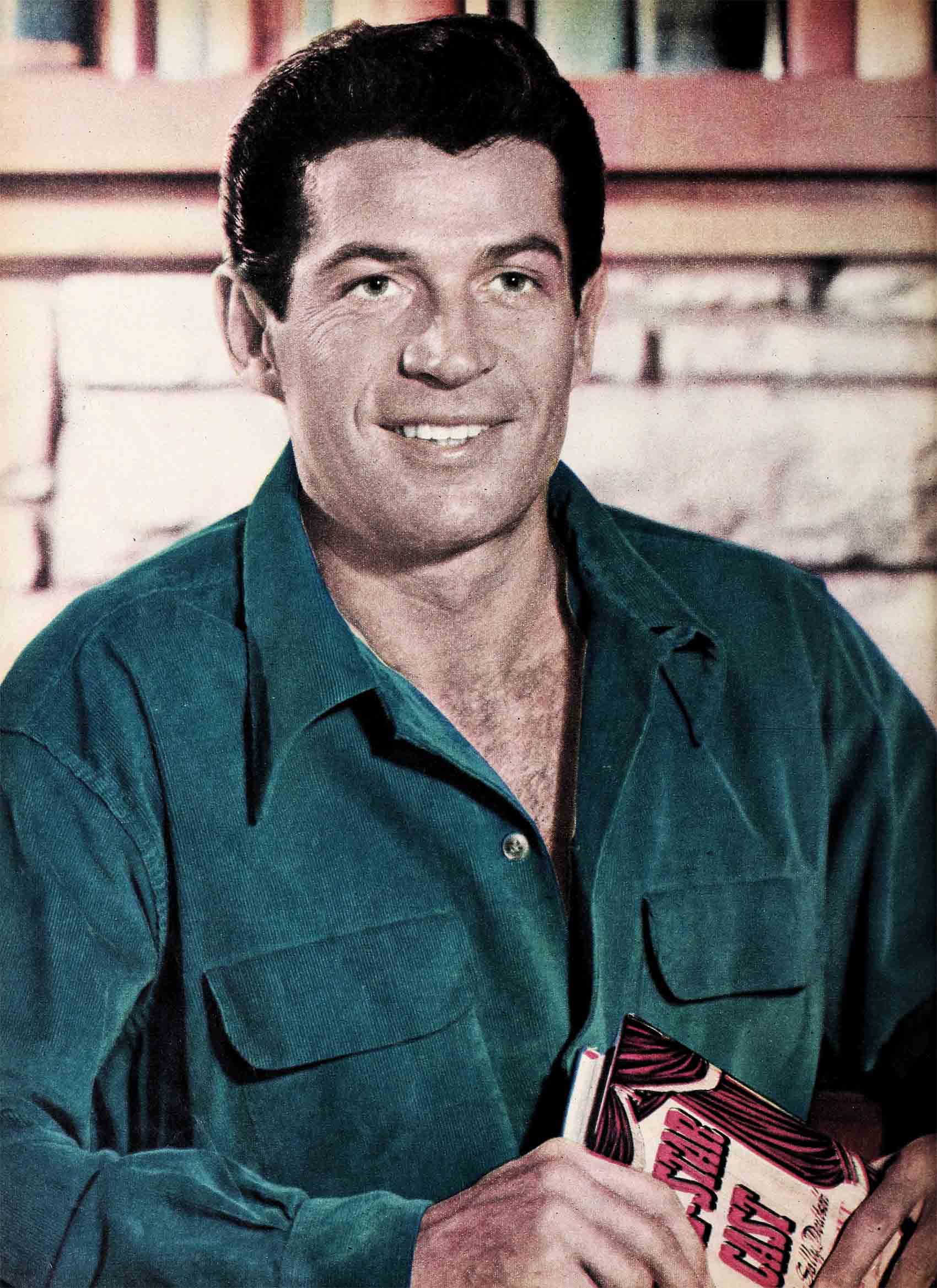
“In the matter of a career, I finally decided that I wanted to act in films. Foolishly, I took it for granted that to happen it must happen in one way and one way only: I would have to land a long-term contract right here in Hollywood, and it had to be right now. There were no if’s, and’s or but’s about it—that was the way it had to be. So I spent a long, long time cracking my head against a stone wall and getting nothing but a nice collection of lumps and bruises. I finally got the contract I’d dreamed of all right, but it didn’t happen by my staying here and diving at that wall—it took three trips to Europe working for independent companies, a number of jobs in little epics best forgotten, a lot of hard labor in live and filmed TV shows and the usual ‘blood, sweat and tears’ before that contract came along. Not at all the way Id said it had to happen.
“I don’t think most people have one, big, all-consuming goal that fills their whole life. Perhaps there is something in the future that is an ultimate marker towards which to travel, but it seems to me life is made up of a series of smaller goals, numerous goals that appear and develop as we grow. Perhaps the important thing is to make each job’s fulfillment the goal of the moment no matter how small it is. When grouped together these minor goals make a pattern of living. For the fun of living, maybe one of the best things you can do is always have a project in mind—even if it’s keeping a garden, exercising or getting supplies in from the market. You can think of these things as irritating chores—and they become irritating—or you can think of them as goals and set a pattern of achievement for yourself. You can broaden them later, once you’ve developed the habit, to include larger job, hobby and personal goals.
“As far as I’m concerned, my large goal today is working toward being a director. But I know I can’t make this desire into blinders as far as the present is concerned. It’s pretty obvious that almost everything I see or hear or do will contribute to this goal. I know that I can’t achieve it overnight—and I don’t want to—but I know, too, that every experience or observation will help prepare me and open doors.
“In thinking about you and your future, it’s natural to be influenced by others. For a while it’s natural to want to belong, to be part of a group, so we try to dress like everyone in the crowd, to go to the same places, speak the same jargon and ultimately, it seems, almost think the same thoughts. To some extent, when you’re young, this is fine. But sooner or later you’ll realize the truth in the quotation: ‘To thine own self be true.’ At some point, you’ve got to stop and understand, ‘I’m an individual.’ Only by being an individual will you begin to realize your potentialties and abilities. It’s natural to want to be liked and it’s easy to try to be like those we admire, but it’s foolish and wrong to imitate and pattern ourselves.
“A good example in the motion-picture business would be Marlon Brando. From the beginning, I’ve enjoyed his work very much. As an actor, I have a great deal of admiration and respect for him. Does this mean I should imitate him or pattern my acting after what he does? Of course not. For proof of how wrong this would be, all you have to do is look around a little. A whole bunch of young actors have sprung up, trying to achieve his success by trying to imitate what he does on the screen. People refer to them, and not too kindly, as “the Brando school,”—no slur against Marlon, but rather a dig at those who mimic instead of create. They can never achieve Brando’s success this way for the simple reason that no one wants a copy.
“I personally feel education is one of the most important factors in achieving success and happiness. A person must never stop learning and experiencing for this is the sure way to grow and develop as a human being. I can’t agree with those who argue if a guy’s going to be a mechanic all he needs to know is engines. I see no reason why all of us shouldn’t try for as much education in as many fields as possible. I don’t necessarily mean sitting in a classroom; the library’s full of knowledge you can get on your own. The thing to remember is that the more you study and learn in facts and theories, the more you can understand and the more intelligently you can reason for yourself instead of being led.
“The world grows more and more complex. One way to keep from blowing ourselves off of it is through knowledge—not only of science but of human behavior. Education helps us become individuals and helps us appreciate the problems of others. Through learning you can become free, you can create. When I see people waste time, hear youngsters bemoan the fact that all frontiers have been discovered, I cringe. All goals do not have to be planned in terms of conquering wild territory, financial gain, fame or material possessions. We, today, have one of the most challenging goals in history: To learn more about ourselves and our neighbors, to learn to live in peace and harmony, to understand the tremendously exciting—and complex—world which is ours today.
“But don’t kid yourself, no one’s going to do it for you. You’ve got to do things for yourself, prepare for happiness and growth and achievement through thought, study, and plain hard work. Keep the doors all open to your future, don’t say it must happen one way. Know if you stick to your ideals and if they are right, you’ll receive intense satisfaction. It’s up to you to set them up and pursue them.
“Okay,” George smiled sheepishly. “I’m off my soapbox.”
THE END
—BY RUTH WATERBUR
It is a quote. PHOTOPLAY MAGAZINE DECEMBER 1955




